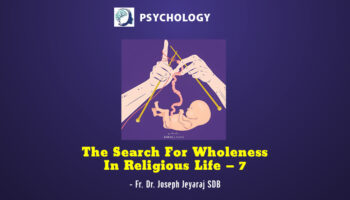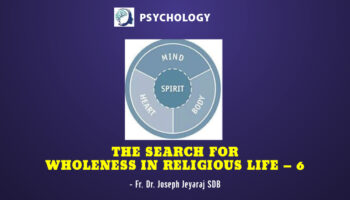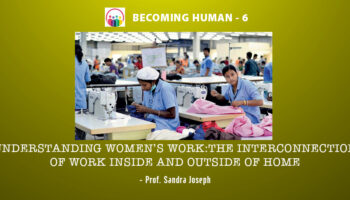An extraordinary story of generosity is that of P. Kalyanasundarm from Tamil Nadu, now 75, who was given the rare title of “Man of the Millennium.”
What is best known about Mr. Kalyanasundaram is that he donated to charitable causes his entire salary from the first day of starting his job as librarian at Kumarkurupara Arts College at Srivaikuntam, Tamil Nadu, till the last day of his service. He also gave away his entire pension money to charity. To sustain his own simple life style Mr. Kalyanasundaram worked as a waiter/cleaner in a local restaurant and did other sundry jobs.
His generosity expressed itself in many other ways as well.
When the Sino-Indian war broke out in 1963, Prime Minister Jawaharlal Nehru made a public request on radio for people to donate to the National Defense Fund. Mr. Kalyanasundaram, then a student at Madras University, donated his one valued possession—his gold chain.
When floods ravaged South Tamil Nadu districts in 1992, he travelled to several villages and donated books, school uniforms and stationery to 10,000 children.
He donated his entire millennial price award of thirty lakh rupees to charity!
Mr. Kalyanasundaram wants to be useful even in death. He has donated his body for scientific research after his death.
Rewards of Generosity
What did his generosity bring Mr Kalyanasundaram? Recognition, yes. The joy that comes from giving, surely. The satisfaction of so many lives being enriched, no doubt.
But there is much more. Scientific research tells us that just like gratitude that we explored in the last column, a generous disposition has an extraordinary impact on our emotional health and well-being. Such a disposition evokes in us positive emotions with consequent benefits. Generosity is a proven mental and emotional health enhancer. Jesus’ exhortation, “Give, and gifts will be given to you…” (Lk.38) is true in many ways.
The Gospels have two marvellous stories of generosity. One is of the widow who put her entire life earnings, though so small, into the temple treasury (Luke 21, 3). Jesus appreciates her generosity.
The other is that of the boy with two fish and five loaves. This story is quite intriguing for me. We hear Andrew saying, “there is a boy here with five loaves and two fish” (John 6.9). Two fish and five loaves is quite a bit of food for a boy. Was that the ration for the whole family that he was carrying? Did the boy give away his fish and bread voluntarily? Or, did the apostles snatch them from him and take them to Jesus? Whatever the case, the boy was left with nothing, but his sacrifice fed five thousand.
Generosity reduces stress, prevents depression, enhances our sense of purpose and leads to overall life satisfaction and sense of well-being, making us healthier and happier.
Research has shown that helping others enhances the helper’s own happiness. Generosity trumps selfishness when it comes to success in the long run.
Generosity leads us to perceive others in a more positive light, enhances social connectedness and builds positive personal relationships, both of which are proved to enhance emotional wellbeing and contribute to reduced risk of mortality. Feeling lonely and isolated from others is known to raise blood pressure, increase depression, and even lower the overall feeling of meaningfulness in life. A meta-analysis of 148 research studies has found that stronger social ties were associated with a fifty percent reduction in mortality rates.
Generous actions create a “feel good” factor, which in turn, enhances self-esteem, a necessary contributor to emotional health. These actions release endorphin, dopamine and oxytocin – the “feel good” chemicals in our body – which brings about a “helper’s high” and helps fight stress and disease. Feeling good is a natural by-product of doing good. Stinginess – the opposite of generosity – on the other hand, has been found to evoke a sense of shame, which negatively affects emotional wellbeing.
More importantly, just like gratitude, a generous disposition also enhances our immune system and extends our lifespan. One major reason for this is that helping others reduces our stress levels. Stress, we know, is the major contributor to some of the killer diseases like cancer and blood pressure. Being stingy, on the other hand, is found to increase cortisone levels in the body and contribute to increased stress. Generosity not only reduces blood pressure, anxiety and depression; it also lowers the risk of dementia, thus contributing to wellbeing and a longer and happier life.
Thus, there are enough reasons for us to be generous. However, if we are generous in order to gain these benefits, then the benefits fail to show up!! Our generosity should not be a way of getting something for ourselves.
What is generosity?
Generosity is not just giving gifts or donating to a good cause. More importantly, it is a disposition of the heart that prompts us to be sensitive and caring, to move out of our comfort zones into the lives of others. It is a disposition that makes others’ wellbeing our personal concern.
Generosity naturally flows from gratitude and the sense of awe and wonder. When we recognize how much we are at the receiving end of others’ generosity, how much we are surrounded by the bounty of God and of the Universe, how a multitude of daily miracles sustain us and enable us to get through the day, we want to return the favour and do good in return.
However, generosity cannot be equated just with giving gifts or helping someone. To be generous, as the dictionary defines it, is to be “magnanimous.” Magnanimous means having a “large soul,” from the two Latin words “magna” = large and “anima” = soul. So, real generosity is about the largeness of our heart, from which flow the deeds of kindness and compassion.
For the great catholic theologian and philosopher Thomas Aquinas, magnanimity is the greatest of all virtues. It is the cherry that tops all charity.
Little Ways of Being Generous
We need not be, and may not afford to be, as magnanimous as the poor widow, the boy with the fish and loaves, or Mr. Kalyanasundaram, giving away all that we have. We can be generous in little ways. We can contribute a bit of our time, make a small donation, give away a book we have already read, or the clothes lying unused in our cupboards, spend a few minutes with a distressed person, make someone feeling blue laugh, give free tuition to a struggling poor student, volunteer to help our neighbours or at the local parish or charity.
Countless, indeed, are the opportunities to be generous.
One significant socially and ecologically beneficial way we can be generous is practising “downward mobility,” that is, trying to live with less and less in a rampantly acquisitive and consumerist society. When we live a simple life style, resisting the seductive invitations of the advertising industry to consume more and more, we contribute to the abundance in which many others can share. We can give, by saying “no” to the superfluous.
For reflection:
As I look back over the past week, what expressions of generosity can I recall?
How can I be more generous in the coming week?

To subscribe to the magazine Contact Us





